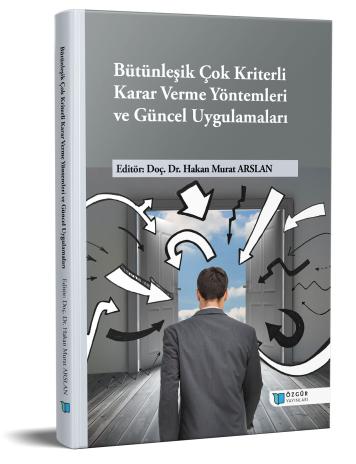
Multi-Criteria Decision Making: Fundamental Methods, Processes, and Hybrid Approaches
Chapter from the book:
Arslan,
H.
M.
(ed.)
2024.
Integrated Multi Criteria Decision Making Methods and Current Applications.
Synopsis
This study examines the fundamental concepts, processes, and approaches of multi-criteria decision-making (MCDM) methods. MCDM is a set of methods that enable the utilization of multiple, often conflicting, criteria in decision-making processes. MCDM methods are widely used for the effective and systematic solution of complex and multifaceted problems in the contemporary world. Furthermore, integrated and hybrid MCDM approaches have also emerged as effective tools for solving complex problems. The study first discusses the concept of decision-making and its importance. The decision-making process is a complex one, encompassing not only selection but also classification and ranking tasks. The components and stages of decision analysis are explained in detail. Decision analysis techniques are examined under three main categories: single-objective decision-making, multi-objective decision-making, and multi-criteria decision-making methods. The focal point of the study, MCDM methods, are examined in depth for their characteristics, such as the consideration of multiple criteria, contribution to the solution of complex problems, and the ability to evaluate both quantitative and qualitative criteria. The definitions, advantages, and application areas of MCDM methods in various disciplines are outlined. Additionally, the significant role of integrated and hybrid MCDM methods in solving complex problems is emphasized. In conclusion, MCDM methods emerge as an important tool for addressing the complex and multidimensional problems of the present day. The study highlights the role and significance of MCDM methods in decision-making processes.

